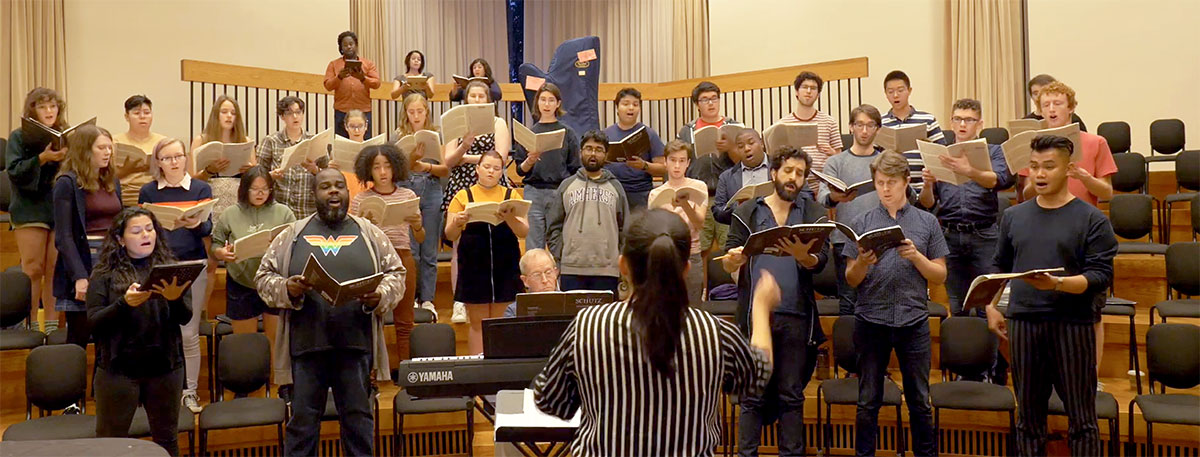
You know you’re onto something when your idea for promoting a more integrated and inclusive classical music scene receives an award before it officially exists.
That’s exactly what happened to Arianne Abela, director of Amherst’s choral program, when she tapped her talented peer network to found the Kaleidoscope Vocal Ensemble. Kaleidoscope made its official debut in Amherst’s Buckley Hall in mid-September, having already received an engagement award from Early Music America the previous May.
Just as Abela imagined, the engagement began with Amherst students. The Amherst Concert Choir learned all of Heinrich Schütz’s Musikalische Exequien in just two weeks, so they could sing it with Kaleidoscope at their debut. At dinner on the night before the performance, students listened as Kaleidoscope’s members—who together have American, Lebanese, Filipino, Indian, Mexican and bi-racial roots—shared stories of the obstacles they encountered on their path to becoming professional classical musicians.
Like their artistic director, Abela, all members of Kaleidoscope’s octet are young (in their 30s and early 40s). All have established careers as solo vocal artists. Some already have Grammys. Most don’t fit the traditional “look” of a classical musician—a fact that has often been pointed out to them.
Kaleidoscope’s second alto Reginald Mobley has heard this so many times that he commissioned a new piece, Nigra sum, to highlight the “microagressions that wear on people who look like us.” Composer Jonathan Woody combined the beautiful musical language of the baroque tradition to contrast with the ugliness of the lyrics, which are quotations of actual statements to Mobley and other musicians of color: “You are so exotic / I bet you sing spirituals very well. / When you stood, I was shocked, / you should play in the NFL.”
Patrick Spoor ’22, who began singing with the Amherst Concert Choir last year, was moved by the dinner and the chance to perform with Kaleidoscope’s members, who were “super passionate about how anyone can sing classical music no matter what race, what background, or sexuality.” Concert choir member Nyla Guadalupe ’23, who was a voice major at her performing arts high school, said she appreciated Kaleidoscope’s warm support and was blown away by their talent. “They have such amazing voices,” she says. “With such a small number of people, it's really hard to get that blend, and Kaleidoscope definitely has it.”